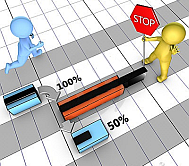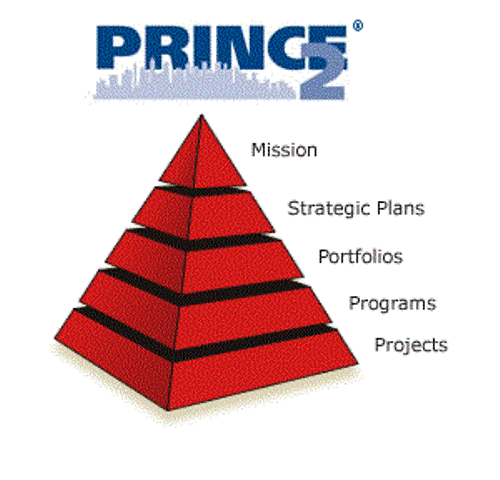
Project Management 101
Are you new to project management so you feel confused about traditional PM science? Well, your feeling is quite natural, and many people just like you feel the same confusion. In order to help you become a competent project manager and be self-confident of the PM discipline, we have written and listed here a series of articles and reviews on the project management fundamentals.
The section “Project Management Basics” allows you to discover the world of the traditional science and learn the principles of project management, including generally accepted definitions, basic processes, stages, steps, phases, constraints and assumptions, duties, roles and responsibilities, skills, principles, and more.
The Benefit of the Project Management Basics
When working on the design and content of the Project Management Basics, we tried to depict information in a reader-friendly format so that you could benefit from reading and understanding definitions, terms, descriptions and explanations easily and without a need for any additional reference or link to external resources. The Basics of Project Management is a section of the PM Toolkit designed for and adapted to people who are professionally involved in managing various projects, as well as to those who are interested in learning and discovering the fundamentals of PM science. We hope our PM Basics will help you gain a better understanding of how to best plan and manage your projects.
Table of Contents
Terms and Definitions top ↑
- Project
- Project Management
- Project Management Principles
- Project Management Office (PMO)
- Project Management Software
- Project Management Framework
- Project Alternatives
- Project Benefits Classification
- Project Contingency Challenges
- Kick-off Meeting Agenda
- Project Meeting
- Project Team
- Project Team Conflicts
- Project Scope Components
- Project Schedule
- IT Procurement
- Quality Policy
- Risk Analysis
- Risk Identification and Tools
- Risk Management Strategy
- Governance Structure and Steering Committee
Processes & Phases top ↑
- Project Planning Process in 10 Simple Steps
- Scope Management Process
- Cost Management – Definition, Process and Software
- Value Management in Projects –Definition and Goals
- Information Management – Four Methods for Gathering Information on Projects
- Project Pre-Charter as a Sub-Phase of the Initiation Phase
- Project Initiation Stage and Project Initiation Document (PID). Duties of Owner and Team
- Managing the Initiation Phase – A List of the Most Frequent Project Initiation Problems
- Project Task Management
- The Importance of Managing Project Knowledge
- Risk Management Plan Development
- Risk Management Process
- Managing Procurement Сontracts
- Managing Procurement Activities
Methodologies & Approaches top ↑
- Project Methodology Definition
- PRINCE2 Methodology Overview: History, Definition & Meaning, Benefits, Certification
- PRINCE2 Activity Models
- PRINCE2 Methodology – What Are PRINCE2 qualification levels and which one to choose?
- Prince2 Process Map – Managing Prince2 Project in Eight Processes
- PRINCE2 Training Courses – 5 Reasons to Study PRINCE2 Project Management Methodology
- Agile Modeling (AM) – Using Models to Carry Out the Development Process
- Review of Agile Project Management Methodologies for Application Development: Scrum, Extreme Programming and Agile Modeling
- Scrum Methodology – Defining the Agile Methodology and Its Benefits
Documents & Papers top ↑
Skills & Roles top ↑
- Key Skills for Project Managers
- Top 3 Leadership Skills
- Team Leadership as a Driving Force for Project Success
- A Project Manager’s Role
- A Project Manager’s Career
- Program Manager versus Project Manager
- Product Manager versus Project Manager
- The Key Duties of Executive Teams and Managers
- The Role and Responsibilities of Project Sponsor
- The Project Manager’s Top Five Sins
- Roles and Structure of Procurement Team
- Best Management Skills











